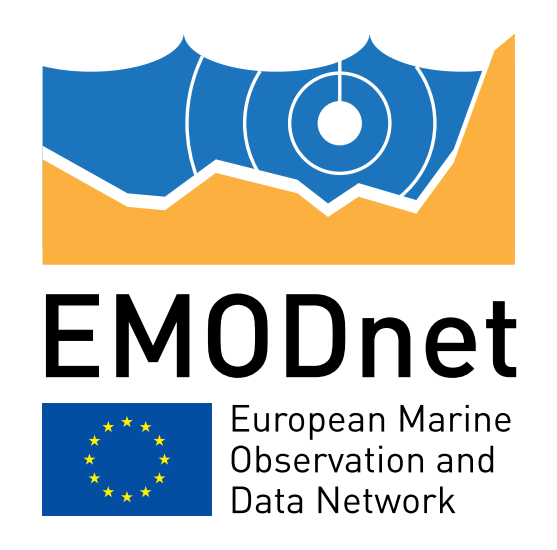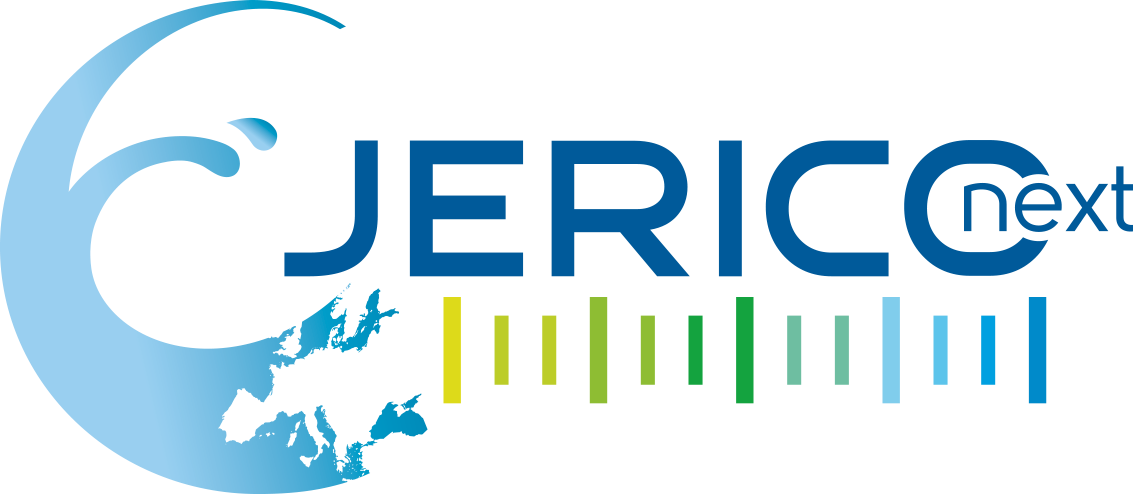Date
09/07/2018 14/07/2018
General information
“Operational Oceanography for Blue Growth is a week long summer school organised by the JERICO-NEXT project, hosted by the University of Malta (Physical Oceanography Research Group, Department of Geosciences). It will be held from 9th-14th July 2018 and delivered by an international range of renowned experts.
Event Coordinated by the Physical Oceanography Research Group
Member of the COPERNICUS Academy Network
Department of Geosciences, University of Malta
This activity forms part of the JERICO-NEXT WP8 capacity building activities and supported by the Copernicus Marine Environment Monitoring Service (CMEMS) and the European Marine Data and Observation Network (EMODnet).
 |
 |
 |
 |
The planning and funding of the course is provided by the H2020 JERICO-NEXT project with the support of the COPERNICUS Marine Environment Monitoring Service (CMEMS), and the European Marine Observation and Data Network (EMODnet).
The course will focus on oceanographic data exploration, elaboration and product creation for Blue Growth. The aim is to empower participants to source, interpret and merge available data, and to acquire the key skills to transform data into knowledge and added value products. More specifically the course is intended to give a broader perspective of the impact of technological development on the marine and maritime sector, on how the Internet of Things (IoT), Big Data, cloud computing and data analytics can provide new approaches to data management and knowledge creation in a smart technology-enabled future. The course will also cover current and future methods for data and information exchange, how and where value is created in and between organisations, and the new paradigms for performance and efficiency set by human machine interfaces. In particular, the summer school will consider how all these factors can increase Blue Growth and excellence in the marine and maritime economic sectors (such as oil and gas, renewables, living resources, policy, and tourism) and related services.
The summer school will include aspects on the future ocean economy, with a full day dedicated to the topic of marine and maritime economic trends in Europe, focussing on the regional seas, in particular the Mediterranean Sea and the Black Sea. This topic will also tackle how technological development, including numerical modelling of coastal domains, new sensors and data acquisition platforms, ICT and other emerging disruptive technologies, will impact ocean-based industries in the coming years. The European Union vision for the future of the oceans will provide the course setting for future aspirations and needs. The European Commission has been setting the pace through its Integrated Maritime Policy and more specifically by the Blue Growth initiative. This initiative identifies the potential for exploitation of technological developments to create smart and innovative applications, and for adding value to products and services provision that brings into action cutting edge levels of achievement and leads to economic benefits and competitiveness. The governance and venture structures needed to bring research and industry together will be described and are regarded as key enabling factors. Another important dimension concerns the revolution in social media; Blue Growth is ultimately about delivering a societal impact and social media impacts will be considered in the context of engagement and impact.
The course will adopt a practical and hands-on approach. It will be delivered in a state-of-the-art computer lab environment offering the participants an individualised learning experience through practice. Dedicated sessions in the programme will link to the COPERNICUS Marine Environment Monitoring Service (CMEMS) and EMODnet, and together with the JERICO-NEXT Virtual Access portals will be used to showcase the relevance of their data streams through dedicated hands-on practical sessions. The summer school will build on the outreach activities of CMEMS, as well as those of EMODnet, and provide a great opportunity to showcase the complementarity between the two. The course will further serve as a platform to reach non-EU countries (especially from neighbouring countries in the Mediterranean Sea and Black Sea). The CMEMS and EMODnet sessions will tackle pre-prepared tasks to provide the participants with an on-the-job experience to tackle problem-solving situations and provide background knowledge required for the mini-hackathon in the last day of the course.
School Highlights
Day 1
Ocean economic trends in Europe with focus on the regional seas; impact of technological development on Blue Growth; the perspective from the European Commission on the future of the oceans through its Integrated Maritime Policy and the Blue Growth initiative; focus on the BlueMed Initiative and the Western Mediterranean Initiative. Introduction to the mini-hackathon.
Day 2
Coastal ocean observatories and showcase of the JERICO-NEXT programme; digital age in Operational Oceanography.
Day 3 and Day 4
Briefing on the COPERNICUS Marine Environment Monitoring Service (CMEMS); introduction to the CMEMS portal; Practical hands-on session on CMEMS.
Briefing on EMODnet; Introduction to EMODnet portals; Practical hands-on session on EMODnet.
Day 5
Introduction to the mini-hackathon, overview of potential ‘blue growth’ challenges, expected outcomes
Mini hackathon – problem focussed session making best use of on-line data (JERICO Virtual Access Services, EMODnet, CMEMS) to develop smart products and services.
Day 6
Visit to HF radar site
Who may apply
Considering the multi-disciplinary nature of the summer course, we expect to encompass a cross sector range of participants including operational oceanographers, ocean modellers, domain experts, computer scientists, data scientists, data managers, graphics artists/data visualisers, software developers, commercially based students, and environmental managers. The challenge will be to offer a programme that brings together these participants with different skills to achieve a common understanding of team capabilities, and how to work together to achieve outcomes not possible by working alone. The course aims to showcase the way to facilitate blue growth, namely by breeding a new culture of professionals that can work as part of a team and exploit individual competences for applications and service provision.
The last day of the course will take the form of a mini-hackathon, giving the opportunity to participants to work in groups where each group would propose, plan and develop a prototype solution to an agreed blue growth ‘challenge’. This may take the form of a visualisation, software application or other tool developed within a larger application (e.g. MATLAB, R etc) that makes use of the data and information resources available through the JERICO-NEXT Virtual Access capabilities alongside EMODnet and CMEMS. To ensure each group has access to the relevant ICT expertise, we plan to sponsor at least four participants with skills in software development to participate in each of the four anticipated groups which will compete for the best smart and innovative application.
Applicants who are in a position to disseminate the experience gained from the school to others will be favoured.
Applications are accepted from both JERICO-NEXT partner and non-partner institutions.
Pre-requirements to the applicants
General knowledge of oceanography; experience with computer programming languages will be an advantage.
Preference will be given to participants who are already engaged in (or have the potential to participate in) public or private endeavours favouring research, innovation and value addition in smart marine downstream services. Applicants who are in a position to disseminate the experience gained from the school to others will be favoured. This is in line with the major target of the course to develop a new culture of professionals that can spread their knowledge and skills through the scientific community to achieve excellent performance in favour of Blue Growth.
How to apply
Please fill in the Application Form and upload the supporting documents (listed below) by 7th June 2018. Applications need to be supported by:
- A letter of recommendation signed by a senior official of the nominating entity, university, institution, national or regional organisation,
- A curriculum vitae,
- A covering letter describing the applicant’s motivation for applying and stating their ability to disseminate the knowledge and experience gained at the summer school to colleagues. If the applicant is seeking help with costs (see Financial conditions, below) their reasons should be clearly stated and justified.
Participants that require a Visa letter should email Prof. Aldo Drago (aldo.drago@um.edu.mt) and Dr. Adam Gauci (adam.gauci@um.edu.mt). Information on who requires a Visa can be found HERE.
Selection criteria
The selection will be based on the CV, the motivation for application and its relevance to the JERICO-NEXT course objectives. The selection will be done by the members of the project Steering Committee and the candidates will be notified about the final results by e-mail. The list of the successful candidates will be also posted on the dedicated school web-site.
Financial conditions
There are no fees or bench charges to be paid for participation. Participants will be expected to cover their own travel, accommodation and meal costs. Guidance on approximate costs for accommodation can be provided on request.
Financial support will be available for a limited number of participants to cover expenses (e.g. air fare ticket, accommodation and meals) to attend the school.
The travel arrangements will be a responsibility of the participant. Sponsored participants will be reimbursed upon arrival provided that costs are the lowest fares available, are supported by receipts and are approved by the organizers.
About the location
The course will be held at the IT services building of the University of Malta. Details on the facilities can be viewed here.
Important dates
Deadline for Application: 7th June 2018
Notification of Successful candidates: 21th June 2018
Course dates: 9th to 14th July 2018
Course announcement
Download the full course announcement here
Presentations and course materials
| Name | Size | |
|---|---|---|
| Day 1 - Foundation | ||
| Mario Sprovieri | 10.9 MiB | |
| Aldo Drago | 6.6 MiB | |
| Graham Worley | 3.4 MiB | |
| Dave Mills 2 | 2.9 MiB | |
| Dave Mills 1 | 2.4 MiB | |
| Alex Borg | 1.9 MiB | |
| Day 2 - JERICO NEXT | ||
| Laurent Delauney | 8.7 MiB | |
| Kate Kollingridge | 3.8 MiB | |
| Ingrid Puillat | 3.7 MiB | |
| Antoine Gremare | 2.1 MiB | |
| John Enevoldsen | 1.4 MiB | |
| Day 3 - Copernicus CMEMS | ||
| Rita Lecci | 4.8 MiB | |
| Vinca Rosmorduc | 4.1 MiB | |
| Anthony Galea | 3.2 MiB | |
| Aldo Drago | 2.7 MiB | |
| Adam Gauci | 2.5 MiB | |
| Day 4 - EMODnet | ||
| Aldo Drago | 16.3 MiB | |
| Patrick Gorringe | 9.4 MiB | |
| Adam Gauci (HF Radar Data Practical) | 3.6 MiB | |
| Pascal Derycke | 2.8 MiB | |
| George Mantas | 412.9 KiB | |
| Day 5 - Mini Hackathon | ||
| Dartagnan And The Three Mousquetaires | 2.3 MiB | |
| Seven Seas | 2.1 MiB | |
| Environmental Data For Marine Animal Behaviour | 1.8 MiB | |
| Corto Maltese | 1.2 MiB | |
| VALLETTA | 1.2 MiB | |
| Team Compass | 464.9 KiB | |
Location
University of Malta
